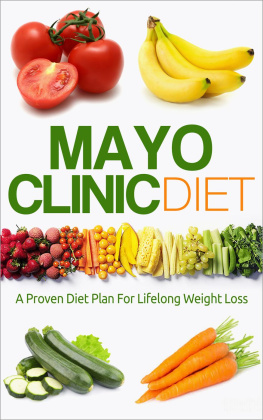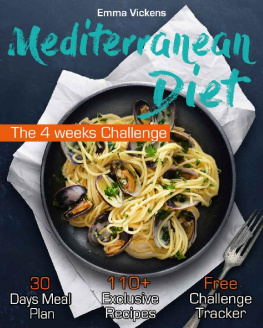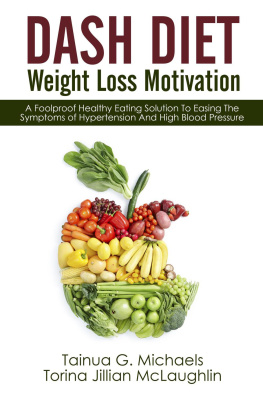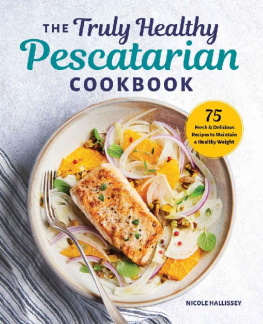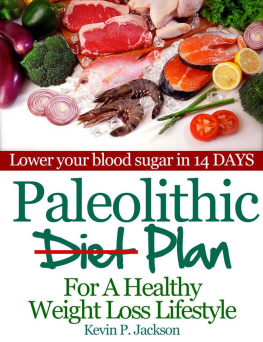THE PESCATARIAN COOKBOOK FOR BEGINNERS
200 Foolproof Pescatarian Recipes to Jumpstart Your Healthy Lifestyle
THOMAS SLOW
Copyright 2020 - All rights reserved.
The content contained within this book may not be reproduced, duplicated or transmitted without direct written permission from the author or the publisher.
Under no circumstances will any blame or legal responsibility be held against the publisher, or author, for any damages, reparation, or monetary loss due to the information contained within this book. Either directly or indirectly.
Legal Notice:
This book is copyright protected. This book is only for personal use. You cannot amend, distribute, sell, use, quote or paraphrase any part, or the content within this book, without the consent of the author or publisher.
Disclaimer Notice:
Please note the information contained within this document is for educational and entertainment purposes only. All effort has been executed to present accurate, up to date, and reliable, complete information. No warranties of any kind are declared or implied. Readers acknowledge that the author is not engaging in the rendering of legal, financial, medical or professional advice. The content within this book has been derived from various sources. Please consult a licensed professional before attempting any techniques outlined in this book.
By reading this document, the reader agrees that under no circumstances is the author responsible for any losses, direct or indirect, which are incurred as a result of the use of information contained within this document, including, but not limited to, errors, omissions, or inaccuracies.
TABLE OF CONTENTS
INTRODUCTION
H ave you ever heard of Pescetarianism or heard someone say they are fishermen? The term may sound strange at first, but the definition is actually quite simple. When a person is adept at vegetarianism (a diet that excludes all types of meats) but is unable to give up eating fish and seafood in his meals, he automatically practices Pescetarianism. But, calm down! This subject is a little confusing and, precisely for that reason, we separated some more information about it. Take a look!
Unlike other types of vegetarianism, being adept at a pescatarian diet means opting for a less restrictive diet, with a wide variety of marine foods, and all kinds of vegetables, legumes, fruits, cereals, nuts, eggs and dairy products, which a good vegetarian menu manages to offer.
It is the ideal diet for those who want to give up meat consumption and still don't know how to start. Especially if you have some difficulty giving up the fish, after all, this is one of the most suitable meats to be eaten regularly. In addition to being extremely tasty, it is usually present in diets with high nutritional value.
A good number of fishers say that the main reason for joining the regime is the search for a healthy, balanced and balanced diet. However, it is worth making it clear that there is no universal norm nor better or worse diets than others.
As long as you are accompanied by a nutritionist, enrich your diet with all the nutrients present in animal meat - such as vitamin B12, which can only be found in red meat - and eat well, it is worth being pescatarian, vegetarian, ovo-lacto-vegetarian, vegan or whatever you want.
The most important thing is always to seek the help of a professional. The transition from diets is not a simple task and can cause everything from nutritional deficiencies to serious types of anemia, such as pernicious anemia, if it is not done correctly.
CHAPTER ONE
Pescatarian Diet
T he term itself comes from the Italian "pesce," which means "fish." This is the whole point: pescatarians are people who do not eat meat from warm-blooded animals, limiting their diet to fish and seafood, as well as vegetables, eggs and dairy products.
Everyone has their reasons for rejecting animal and bird meat. Some pescatarians believe that the resources needed to raise cattle, pork or chicken are too great and irreparable harm to the environment. Others seePescetarianism as an intermediate step on the path to vegetarianism. Still, others see this type of nutrition as a kind of ethical compromise - they do not eat the meat of land animals, but they get the nutrients the body needs from fish and seafood.
The term pescatarian emerged in 1993. It comes from fish's Latin word pesics. Nonetheless, it says nothing about the amount Pescatarians consume fish. For example, if a vegetarian-only eats fish once a year, by definition he 'd no longer be a vegetarian, but a pescatarian.
In recent times, pescatarians have probably appeared more and more recently, as knowledge of the poor conditions in factory farming is coming into view and many no longer want to help this. Additionally, meat and sausages' health disadvantages. Becoming a Pescatarian seems obvious.
One thing is certain: in times of farming and environmental degradation, the number of pescatarians rises annually. An estimated 300 million people worldwide now eat this way. In countries where fish abound, the number of pescatarians is higher.
The benefits and harms ofPescetarianism
The omega-3 unsaturated fatty acid content
One of the indisputable advantages of fish is the high level of omega-3-unsaturated fatty acids. Most people who prefer meat are deficient in omega-3s, as meat products contain fats like omega-6. The body requires both types; however, omega-3s, unlike omega-6s, are anti-inflammatory. The miraculous properties of omega-3s have been proven in many controlled studies, as well as trivial observation of the population of the Mediterranean regions. Consuming more omega-3s leads to better mental health, lower risks of cardiovascular disease, higher reproductive health and fertility, and lower risks of diabetes.
Improving heart health
Omega-3 acids, in particular eicosatetraenoic and docosahexaenoic acids, are important for the body's cardiovascular system as they control inflammation. Systemic inflammation is the definition of the body's immune response that increases the production of white blood cells in the fight against threats and infections. Coronary artery disease is the result of inflammation that starts from the buildup of fatty plaques on the walls of the arteries. Consuming omega-3 acids (200 to 500 mg per day) can help reduce the risk of heart disease, and is as effective as taking medications.
Combating cognitive impairment
Omega-3s are also required for proper brain development and preservation of cognitive function as we age. Many studies have shown that low omega-3 levels in older people lead to multiple brain dysfunctions, such as dementia and Alzheimer's disease. Consuming omega-3s from seafood helps fight cognitive disorders naturally.
Improving mood and fighting depression
Omega-3s help fight depression, anxiety, and attention deficit hyperactivity disorder. It's not a panacea, but it's scientifically proven that with more omega-3 foods, ADHD and depression symptoms are significantly reduced.
Weight loss
Nutritionists worldwide agree that low levels of omega-3s in the body contribute to weight gain and obesity. However, they also emphasize that a menu consisting only of fish and seafood is not enough. It is necessary to include more plant foods in the diet, which leads to a decrease in body mass index and effective weight control.
Now let's talk a little about the possible risks of switching toPescetarianism.


